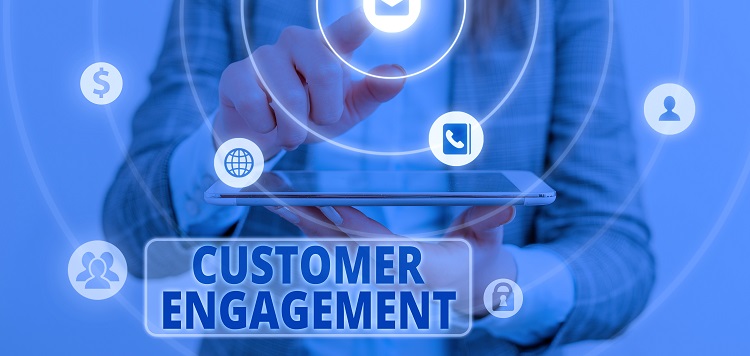In today’s highly competitive marketplace, building brand awareness and customer engagement is vital to the success of any business. Customers are constantly bombarded with information and options, making it increasingly difficult for businesses to stand out from the crowd. This is why investing in customer engagement is one of the most effective ways to achieve brand awareness and customer loyalty. In this article, we will discuss the importance of customer engagement, the benefits of engaged customers, and ways to effectively engage customers.
The importance of building brand awareness and customer engagement cannot be overstated. Brand awareness is a critical component of any successful business, as it denotes the level to which customers are familiar with and recognize a brand. By increasing brand awareness, businesses can establish customer loyalty, trust, and advocacy, which can result in long-term growth and revenue. This is where customer engagement comes in; engaged customers are more likely to have a positive relationship with the business, make repeat purchases, spend more money, and refer others to the business.
Benefits of Engaged Customers
Engaged customers are the backbone of any successful business. They provide a steady revenue stream and act as advocates, spreading the word about the business to their friends and family. Repeat customers spend more money, are more likely to try new products, and are less likely to switch to a competitor. By engaging customers, businesses can create a loyal customer base that generates a sense of community and belonging.
Understanding the Clientele
To effectively engage customers, businesses must first understand their clientele. By analyzing customer data and feedback, businesses can create products and services that meet the needs of their target market. By meeting these needs, businesses can increase customer satisfaction and loyalty. Understanding the clientele is critical for creating effective customer engagement strategies as businesses can tailor their approach to their target audience.
Personalizing communication is one effective way to engage customers. It can involve anything, from personalized emails to personalized offers and even personalized products. By tailoring communication to the individual, businesses can establish a relationship with the customer and create a sense of connection that helps improve customer loyalty.
Offering Self-Service Options
Another effective way to engage customers is to offer self-service options. Self-service options can include anything from online ordering systems to chatbots. By providing customers with the ability to serve themselves, businesses can improve customer satisfaction and save time and resources.
Encouraging feedback is key to effective customer engagement. By soliciting feedback from customers, businesses can gain insights into their customer experience and make changes accordingly. Customers appreciate being heard, and by acting on feedback, businesses can establish trust and a sense of partnership with their clients.
In today’s digital age, it is essential for businesses to be active on social media and websites to ensure effective customer engagement. By engaging with customers on social media, businesses can build a sense of community and increase brand awareness. Websites are also crucial, as they serve as a digital storefront and the first point of contact with potential customers. By creating a user-friendly website that highlights the business’s unique value proposition, businesses can improve customer engagement and satisfaction.
Creating a Loyalty Program
One effective way to engage customers and establish loyalty is to create a loyalty program. Loyalty programs can take many forms, from points-based systems to VIP programs. By offering rewards and incentives for repeat business, businesses can create a sense of appreciation and connection with their customers.
Leveraging the Right Software Tools
To effectively engage customers, businesses must leverage the right software tools. One excellent choice for businesses looking to provide their audience with a personalized and seamless experience is Nimbus. Nimbus is a user-friendly platform that offers a robust set of features, including personalized communication, self-service options, and loyalty programs. By using Nimbus, businesses can streamline their customer engagement strategy and improve customer satisfaction.
Building brand awareness and customer engagement is key to the success of any business. By engaging customers effectively, businesses can create a loyal customer base that generates repeat business and acts as advocates for the brand. To engage customers, businesses must understand their target market, personalize communication, offer self-service options, encourage feedback, be active on social media and websites, create loyalty programs, and leverage the right software tools. By following these strategies, businesses can establish a strong brand and a loyal customer base that generates a steady stream of revenue.

